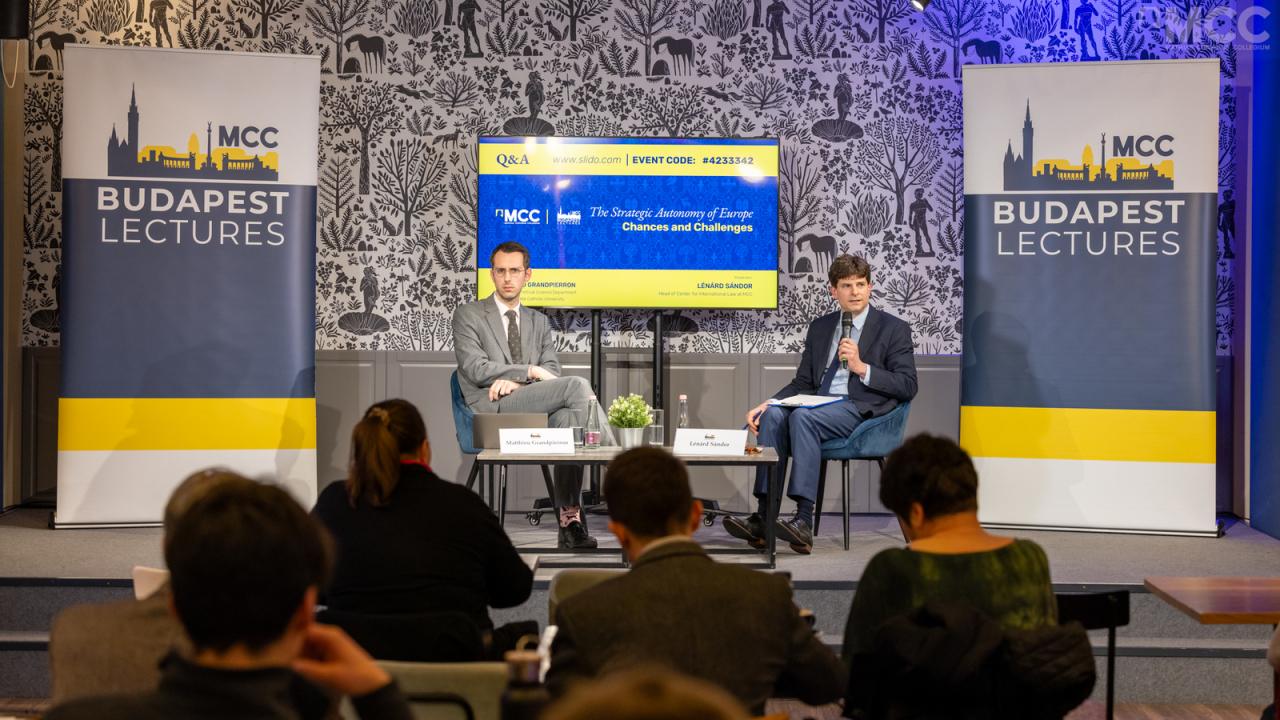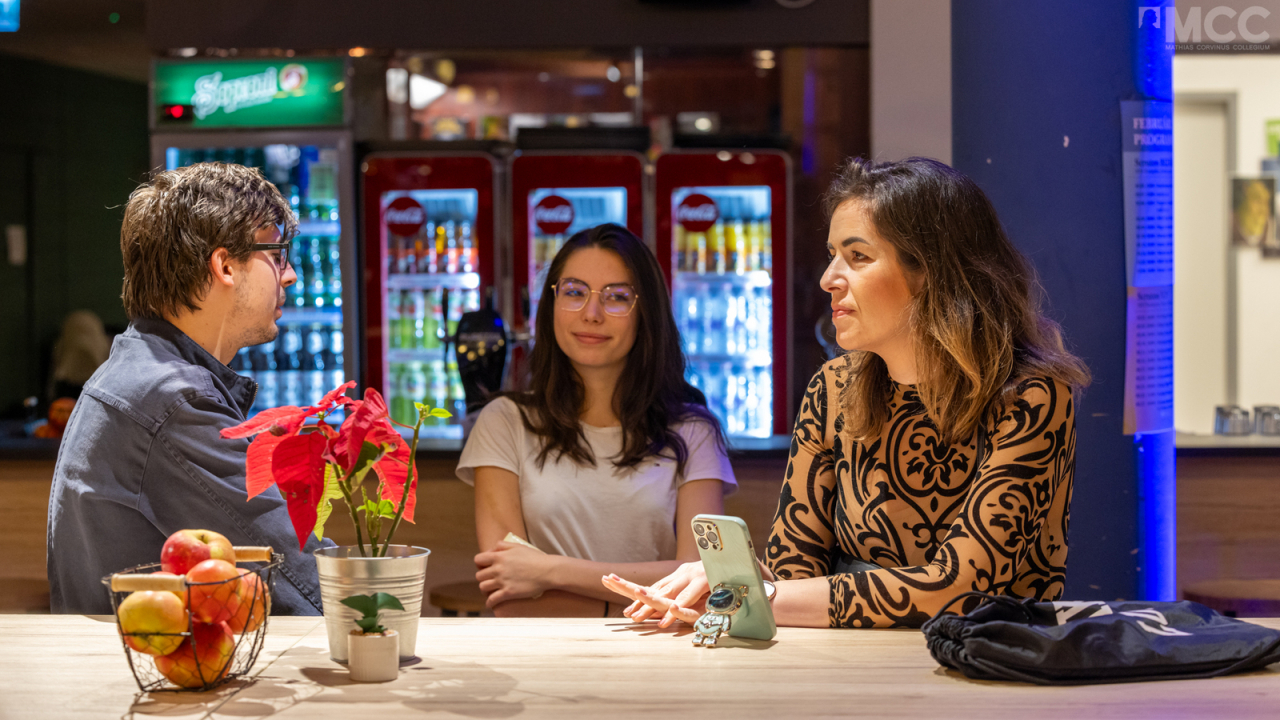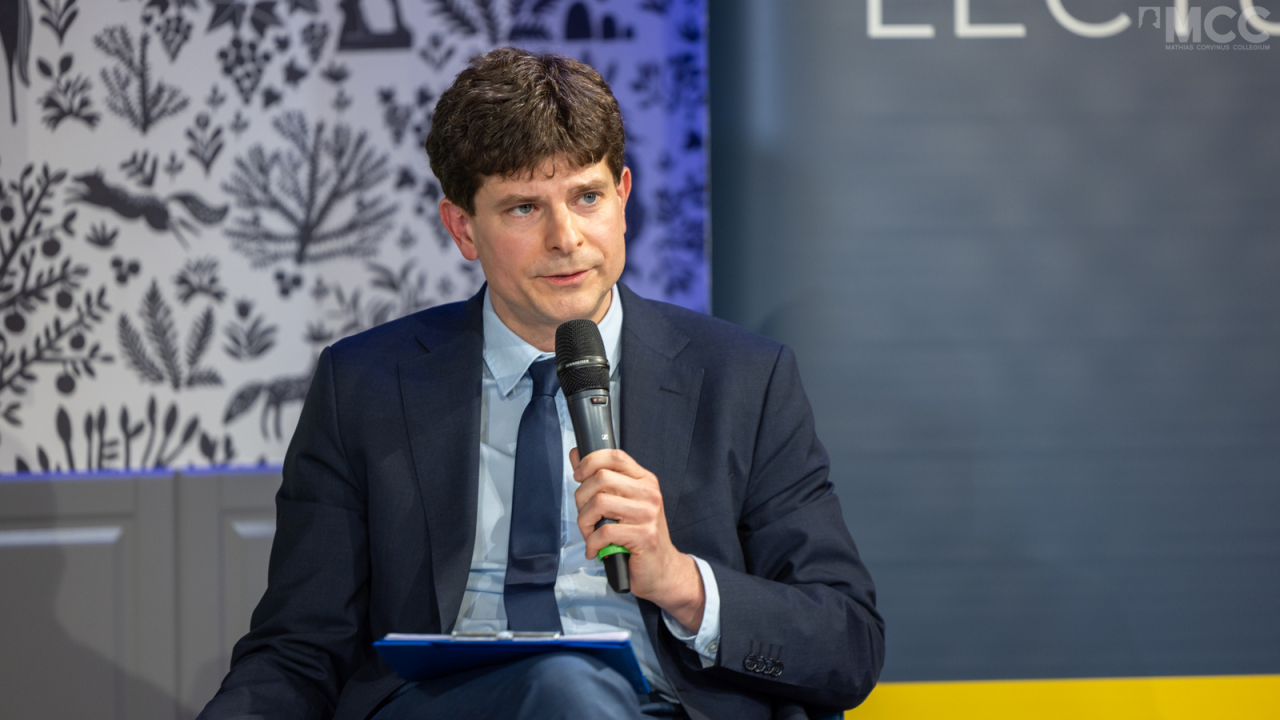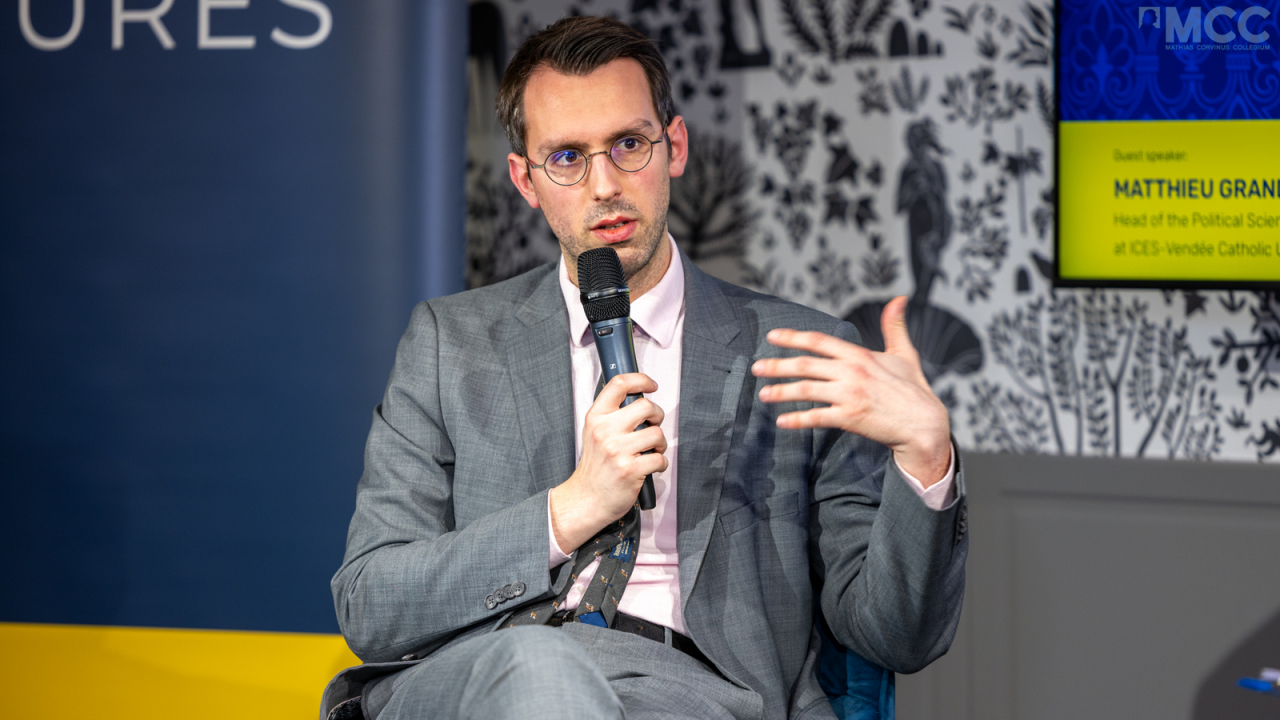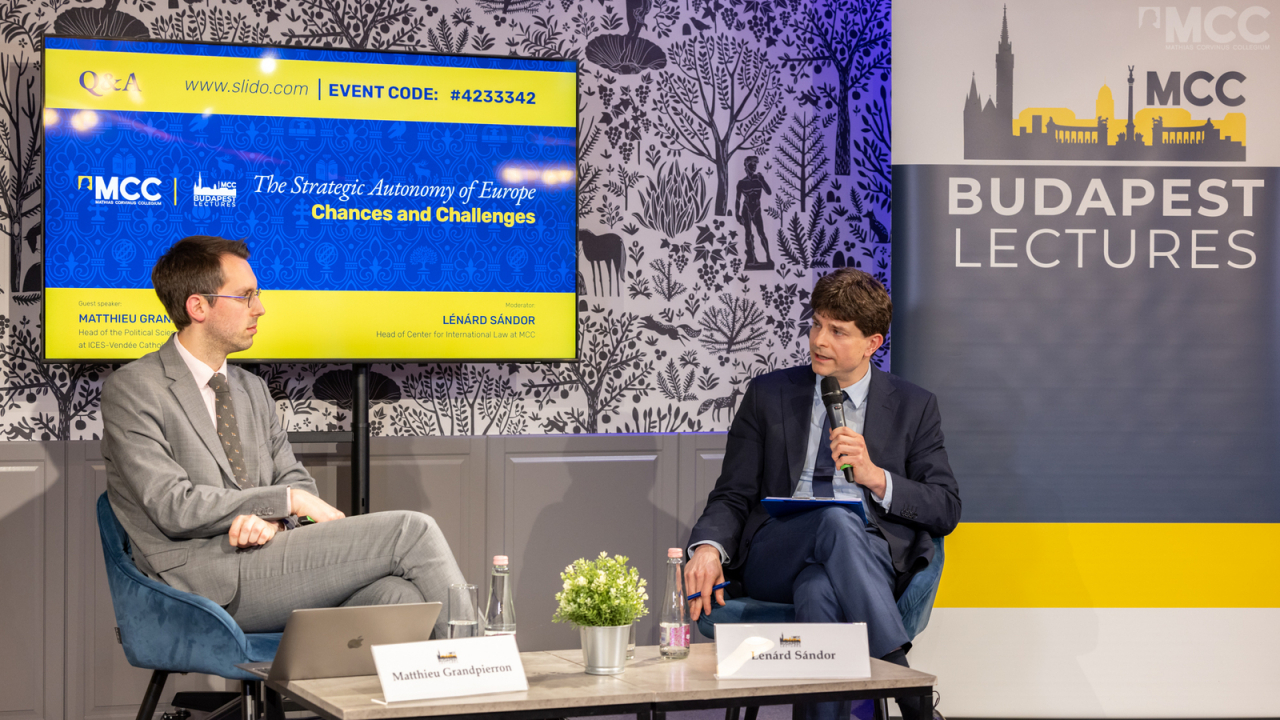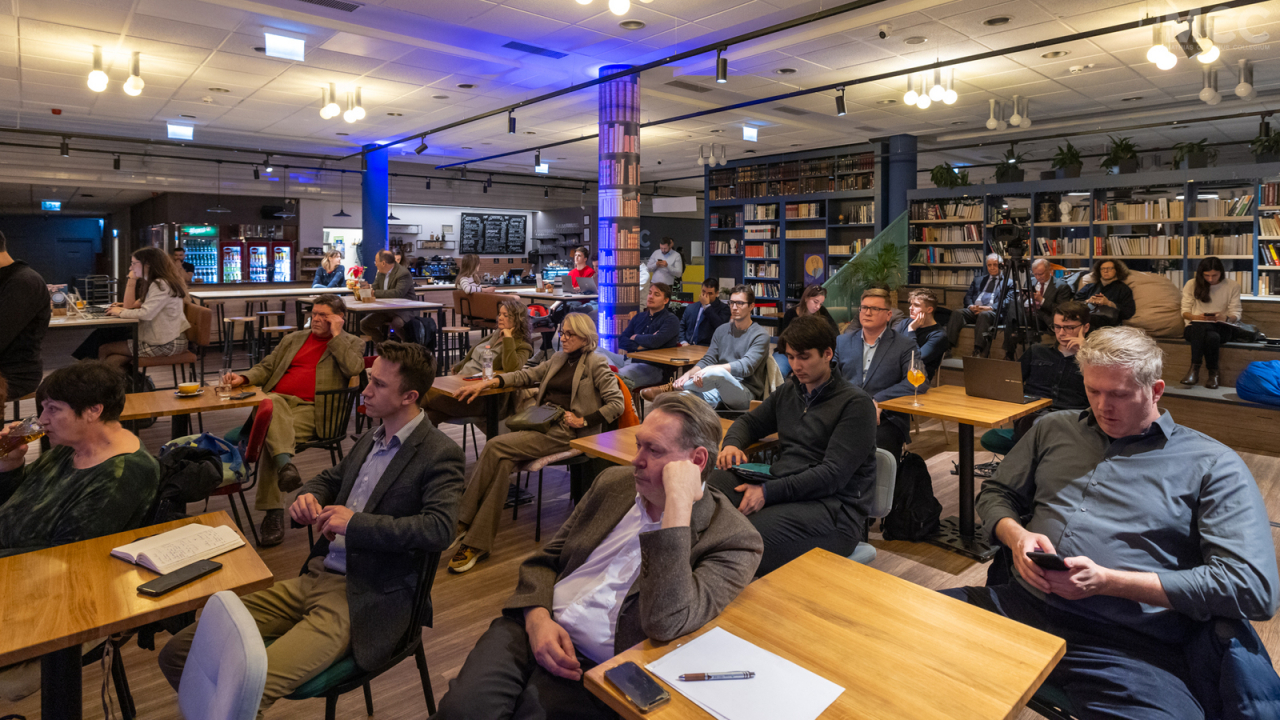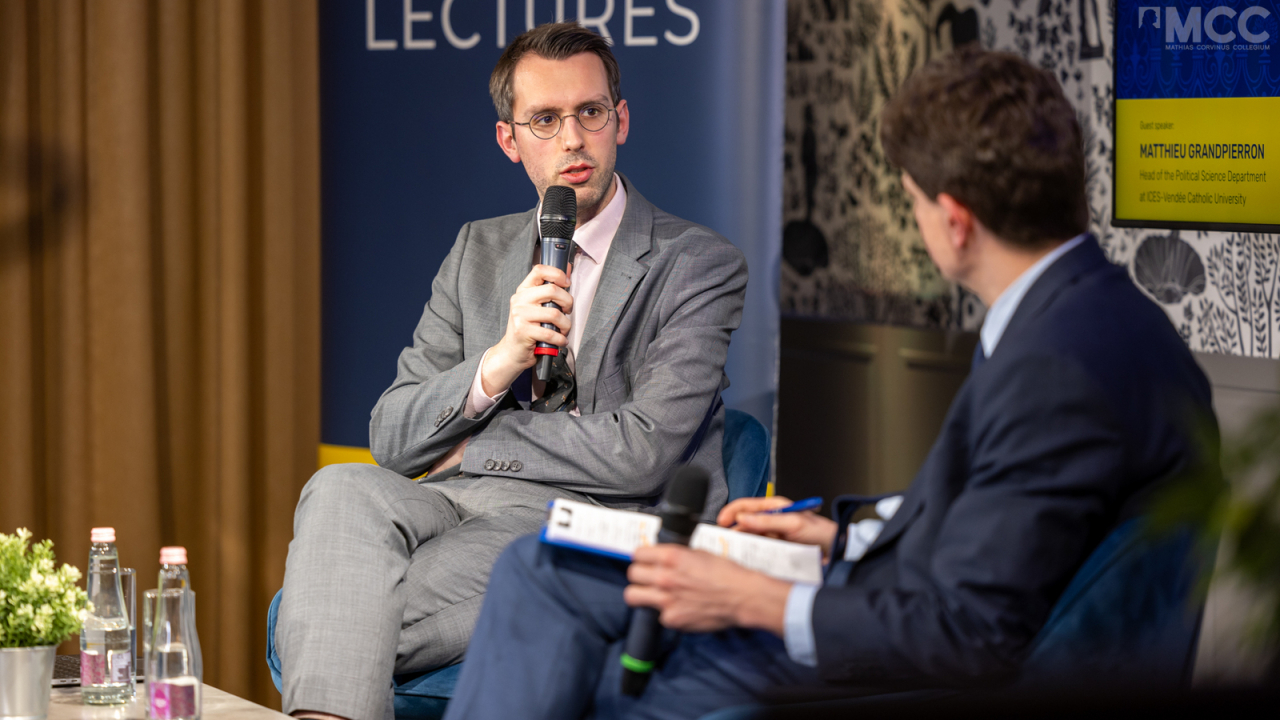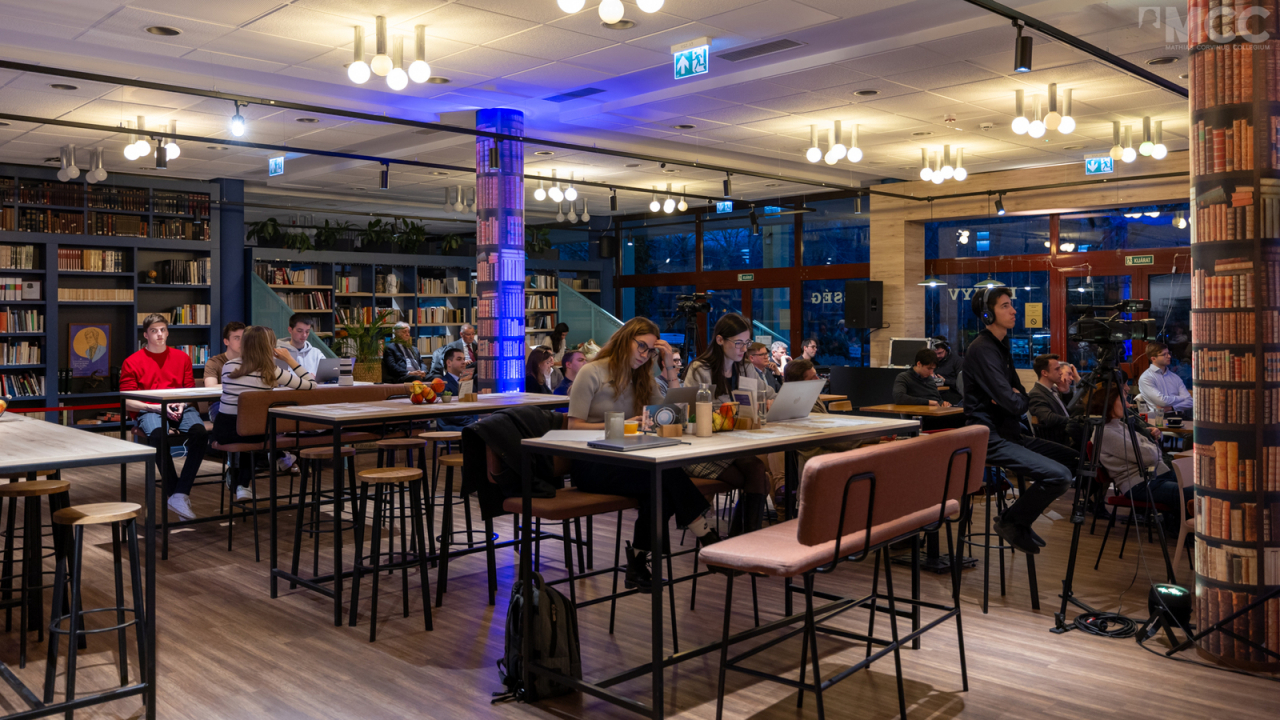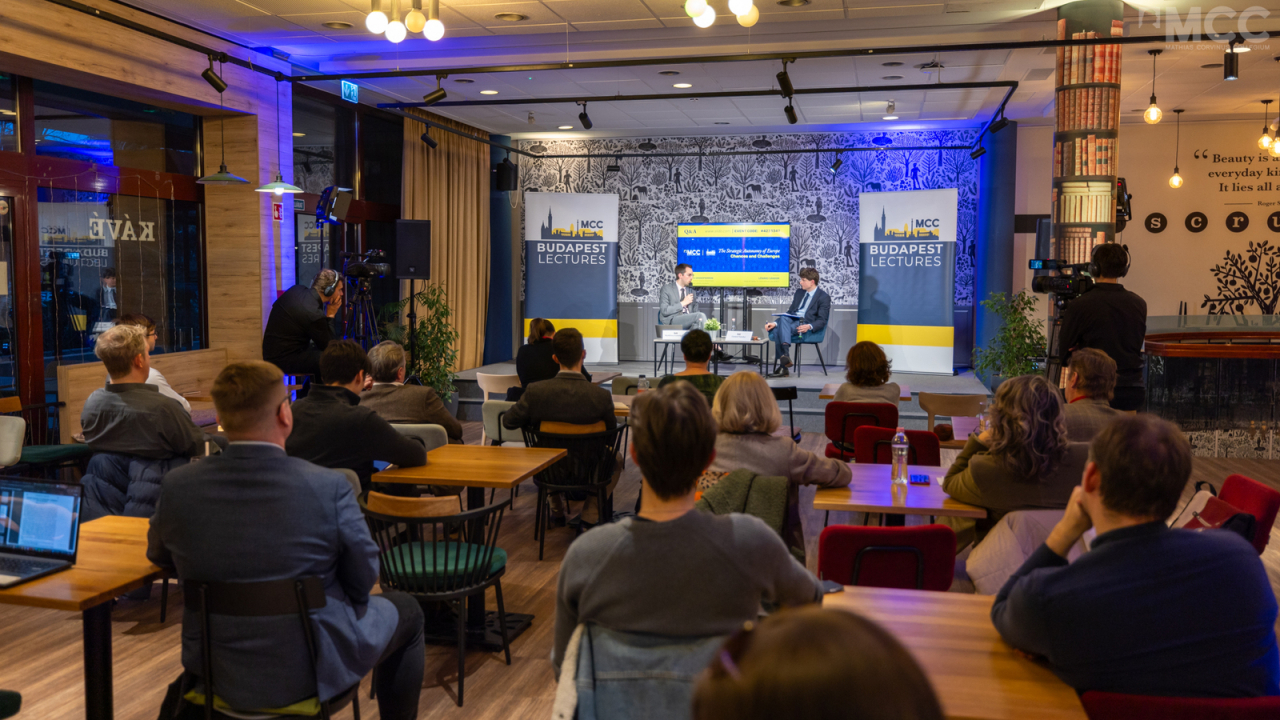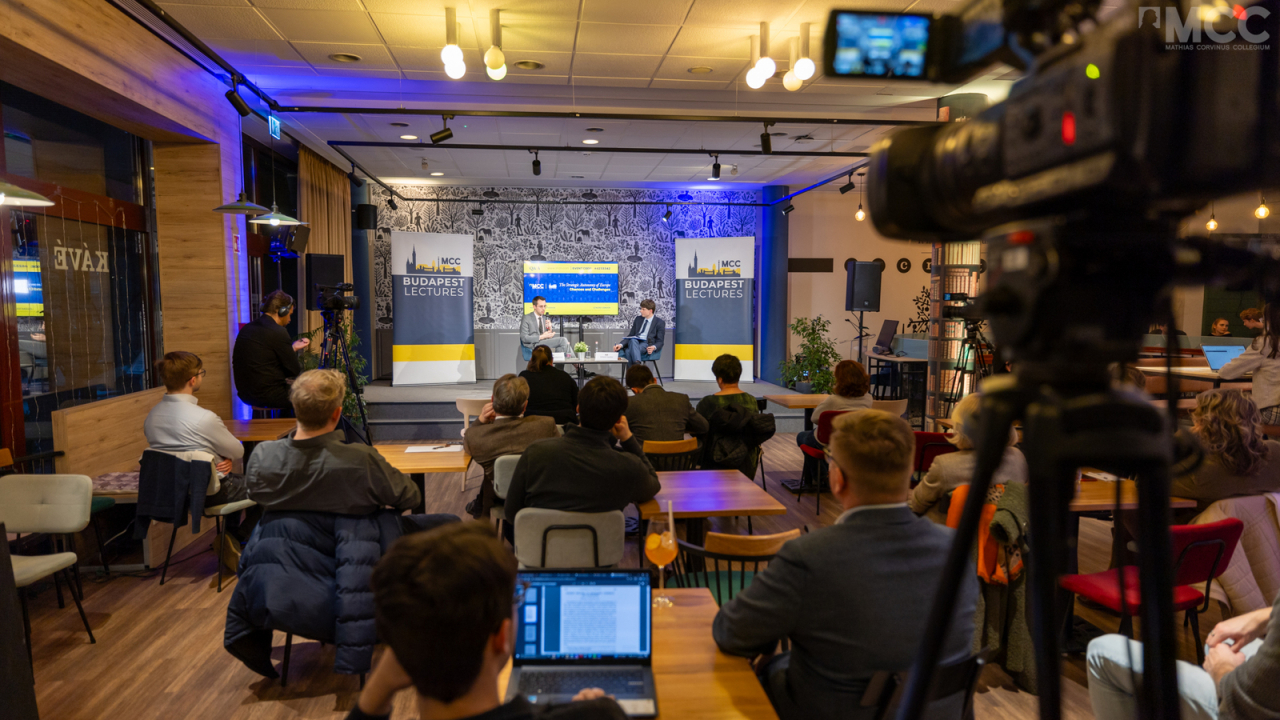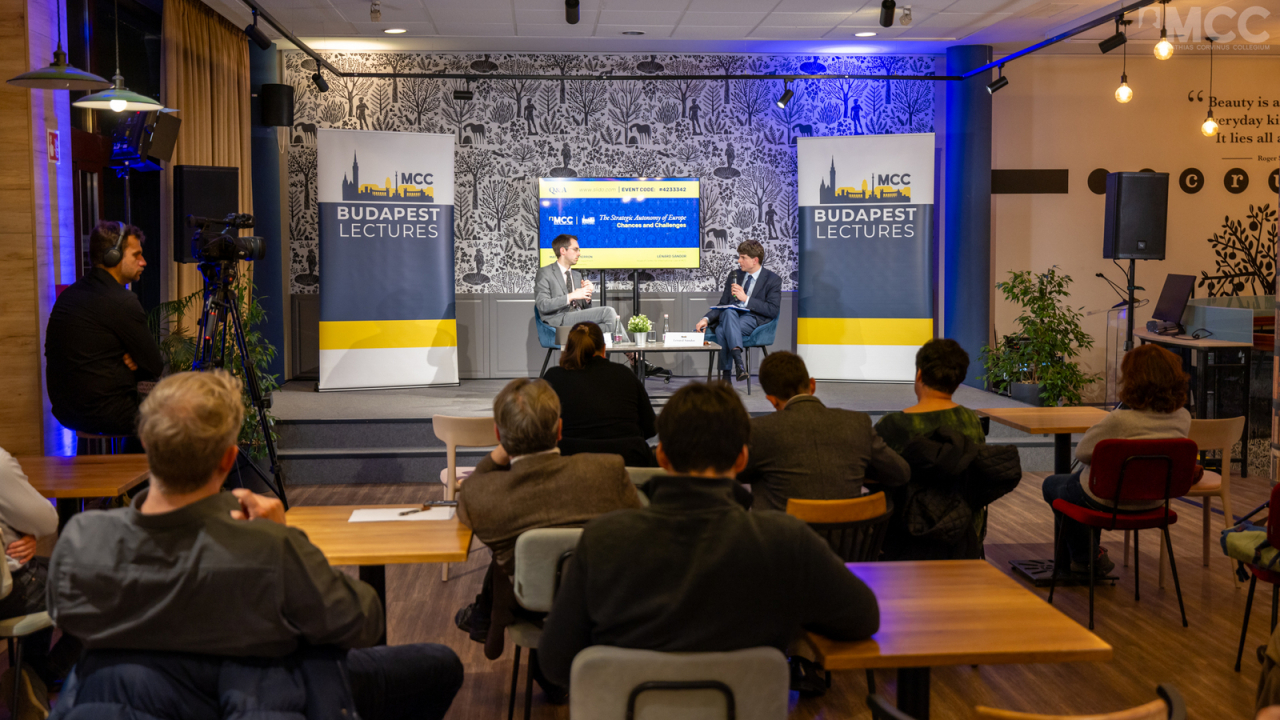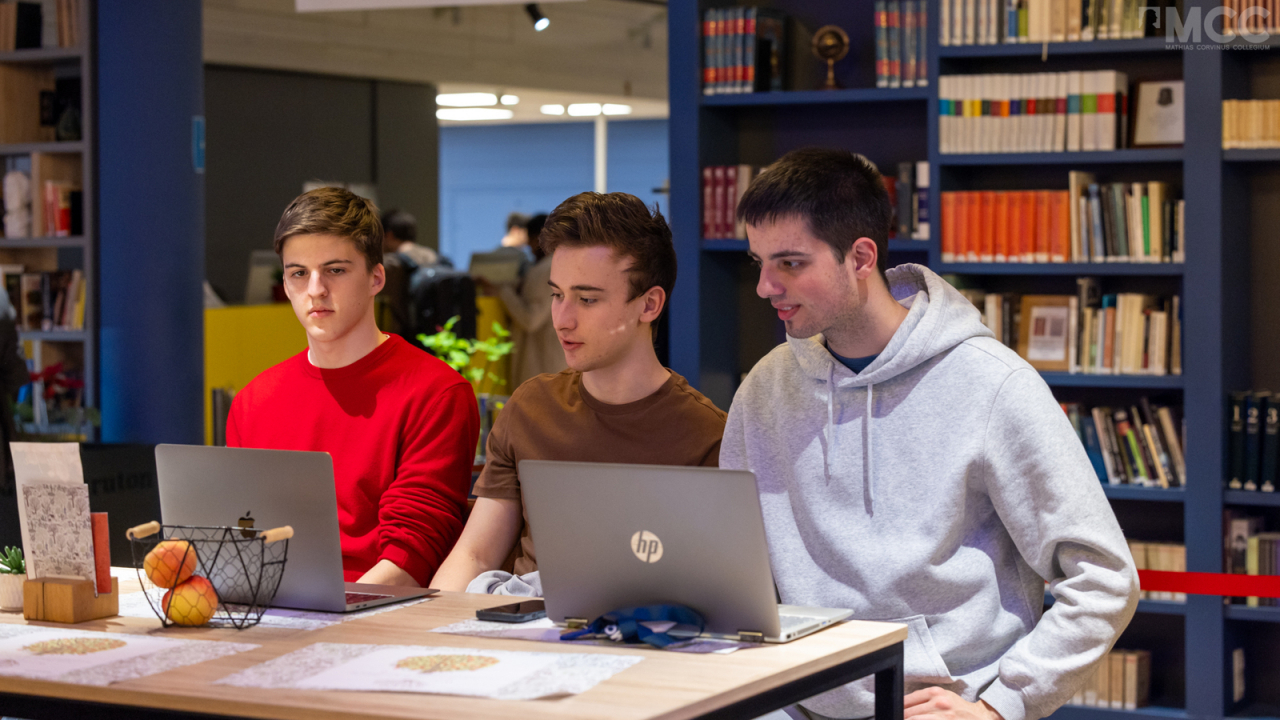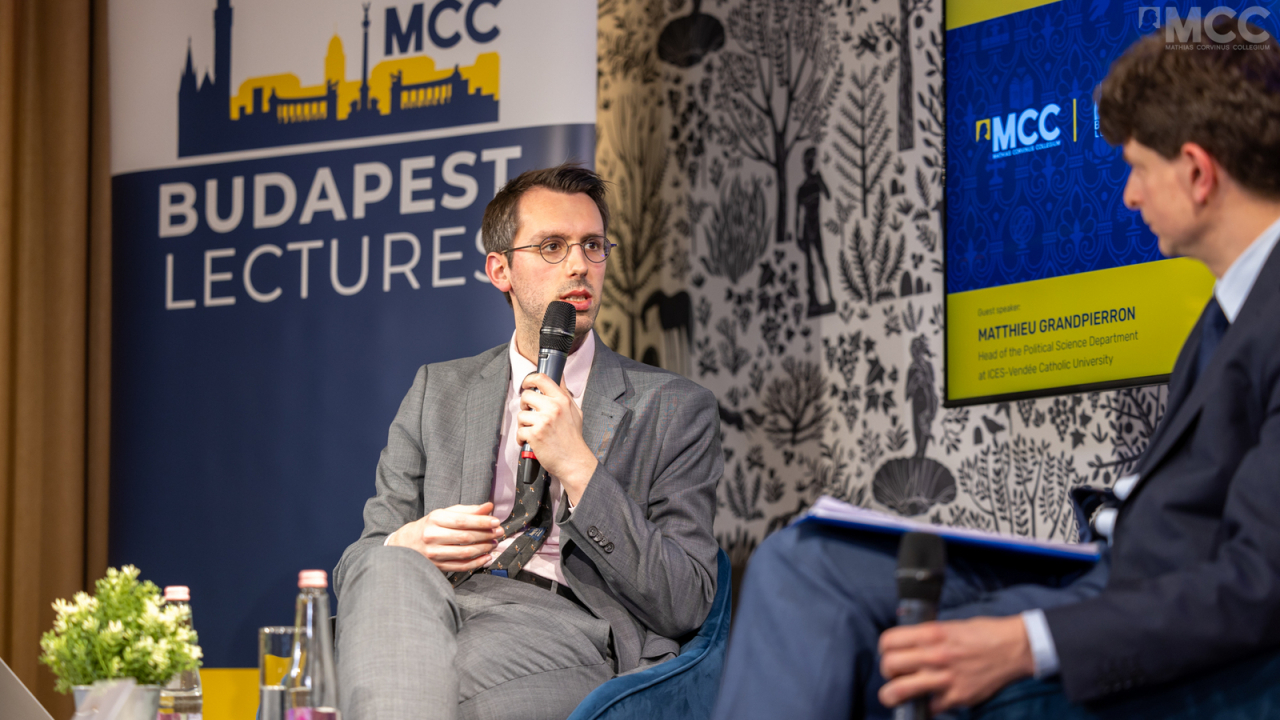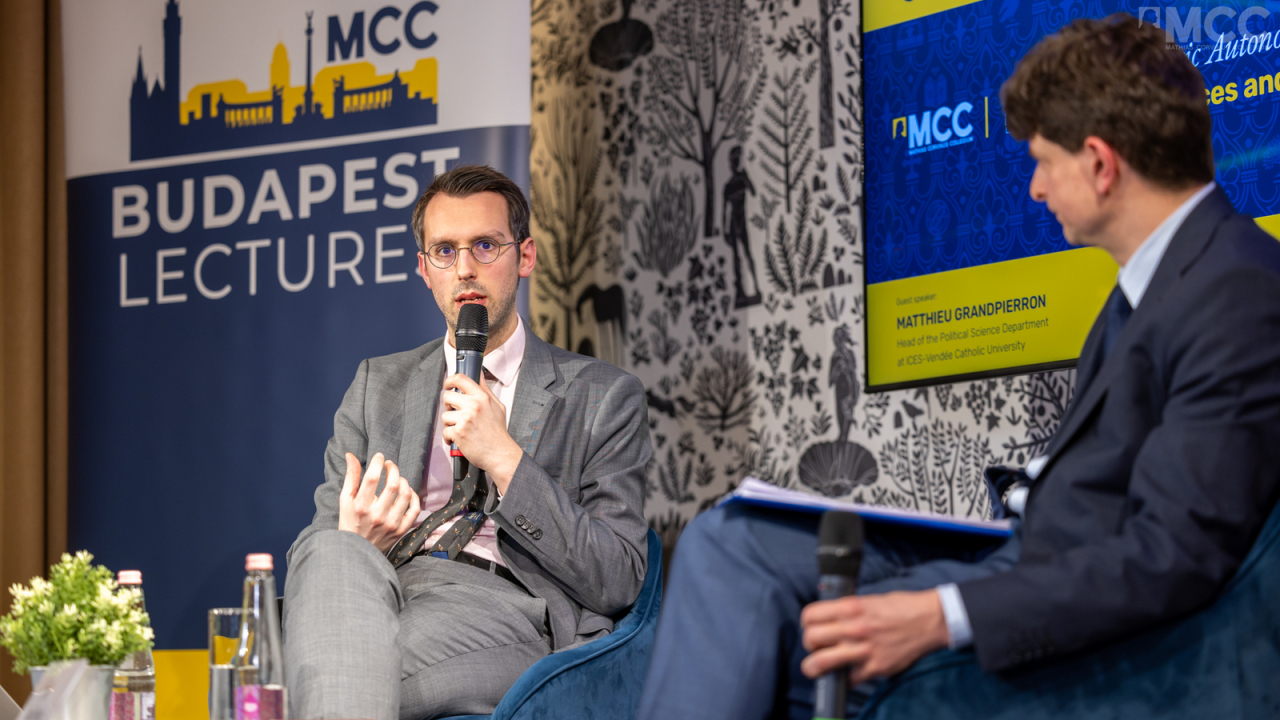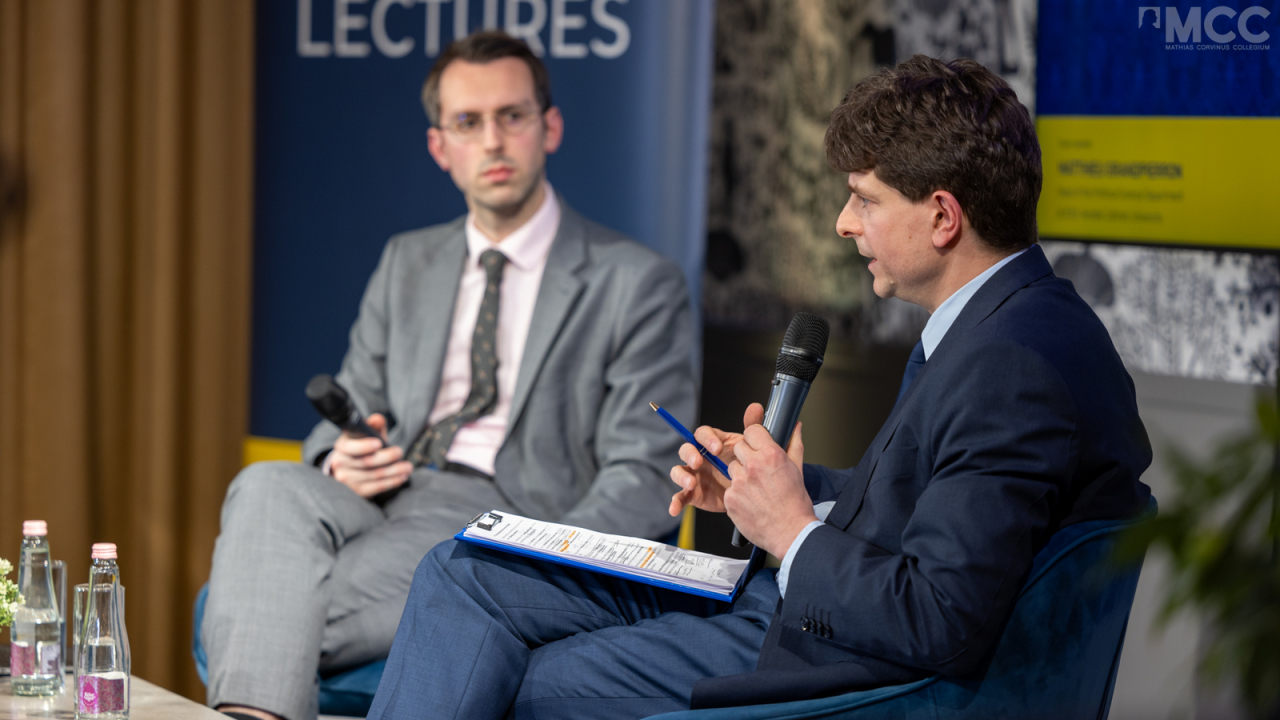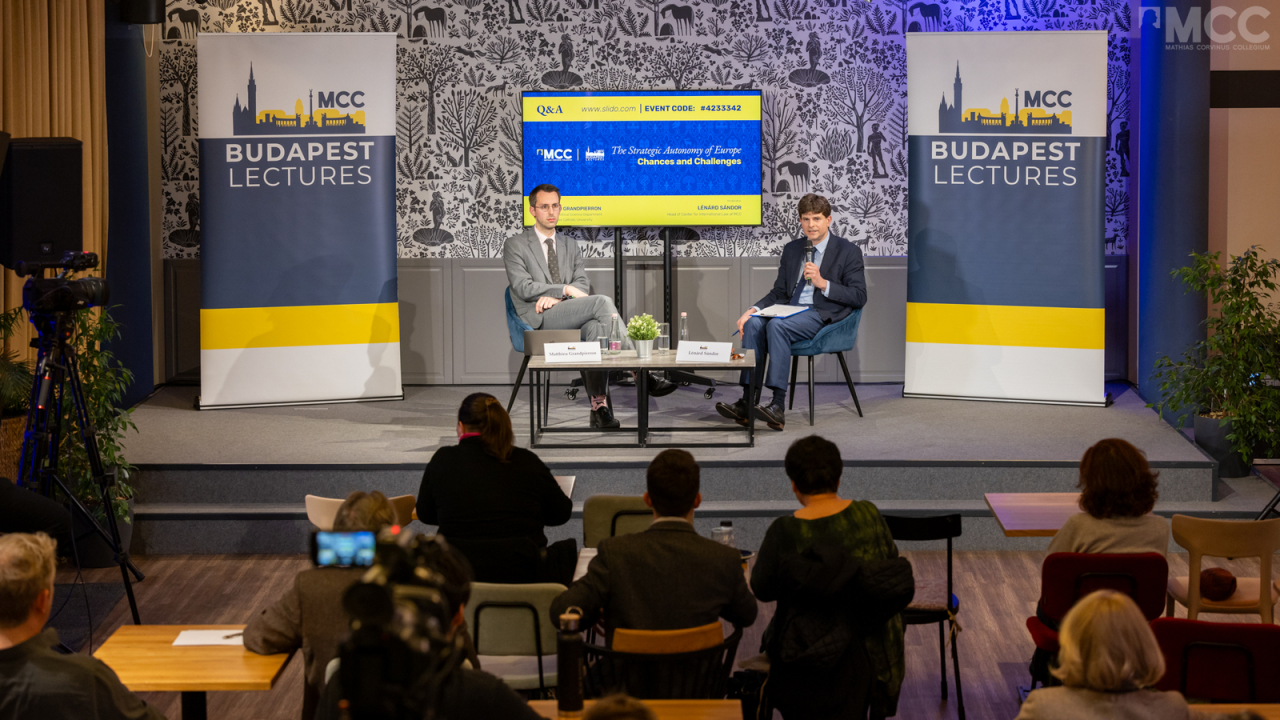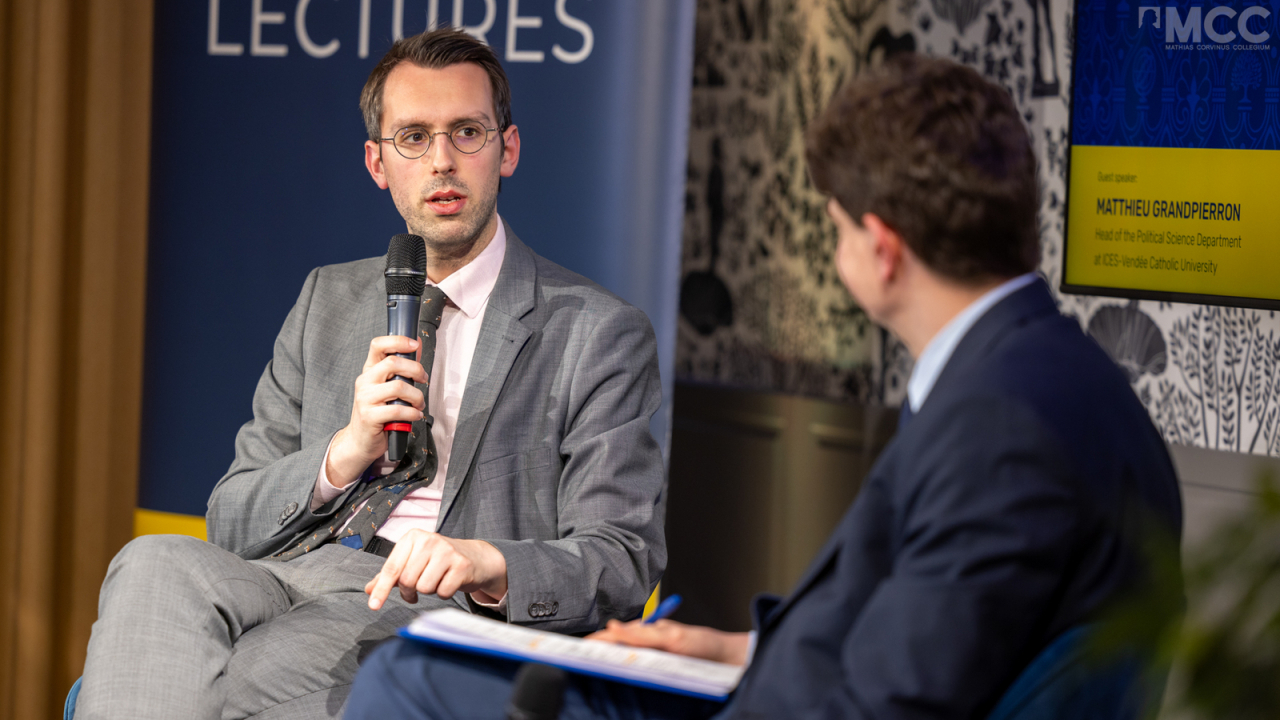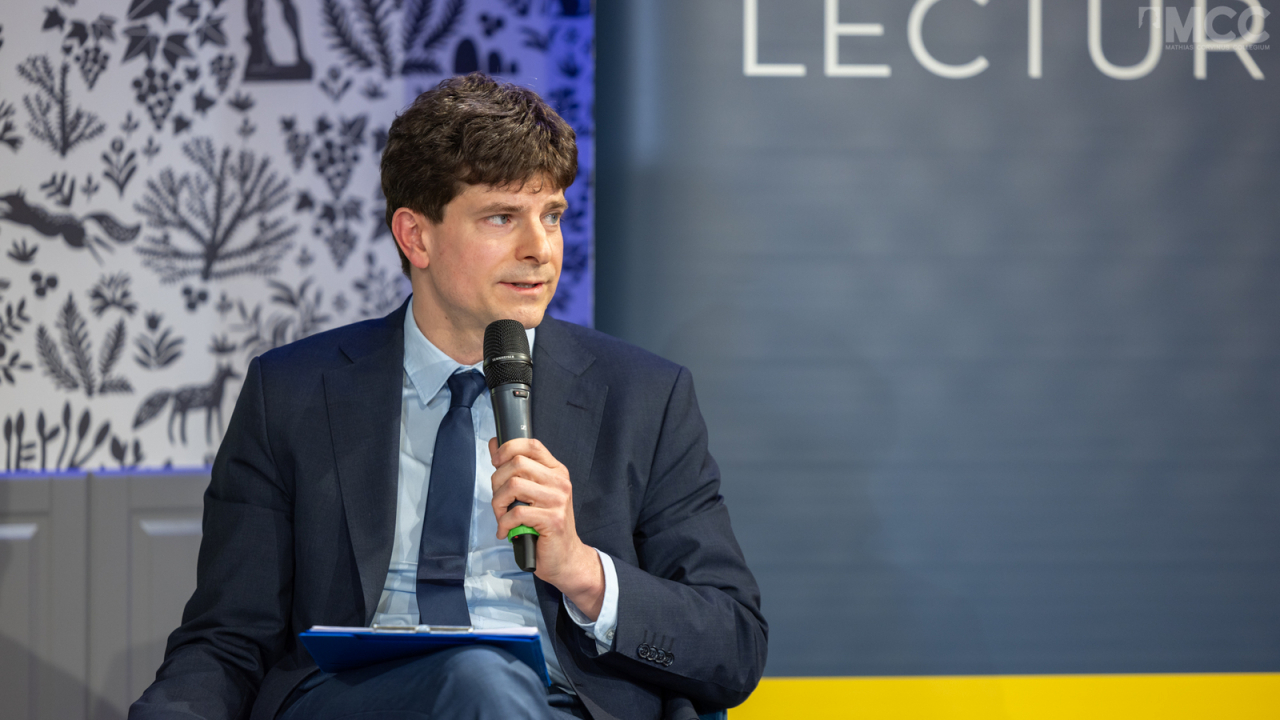Reading time: 3 minutes
“Historically, Europe has had always more room to manouver when Republican Adminsitrations were in the White House. Furthermore, because of his unique approach, if Donald Trump is elected to president, the European cooperation would need to take problems into their own hands” – Matthieu Grandpierron, pointed out in the Budapest Lectures series. The head of the Political Science department at ICES-Vendée Catholic University talked about the questions and challenges of the European strategic autonomy with Lénárd Sándor, head of the Center for International Law.
The Budapest Lecture was organized on the eve of the “Reclaiming Our European Future” conference to explore the historical account and challenges of the “European strategic autonomy.” At the beginning of the Budapest Lecture, the early attempts by René Pleven and Charles de Gaulle to create the autonomy of the European cooperation was explored. This idea was inspired by division of Europe and European countries during the Cold War. However, one also has to understand that security can only be placed in the framework of sovereignty, while foreign policy has to be linked with identity, the question of who you are. You cannot identify a threat if you do not know who you are. Even though it was failed, the main idea of Charles de Gaulle was to create a “European Europe” instead of a “Soviet Europe” or “American Europe”.
The Budapest Lecture also explored the period after the change of regimes. The collapse of the Soviet Union truly opened an era in which Europe could have played an equilibrium power by creating its own view and its own geopolitical block. However, as Matthieu Grandpierron pointed out, the lesson was not learned and the European cooperation has not been able to create an autonomy. President Macron used the concept of “autonomous seucrity” because NATO lost its purpose. He thought France could take the leadership in Europe but it is not certain where he visions national interests in that framework. It was also highlighted that in the new century, strategic autonomy has many other aspects from energy to resources to digital data to industrial capabilities to education and culture. To be able to identify them, Europe needs to define its interests and also the tools to achieve them which all come down to mentality and a coherent decision-making.
Historically, Europe has had always more room to manouver when Republican Adminsitrations were in the White House. Furthermore, because of his unique approach, if Donald Trump is elected to president, the European cooperation would need to take problems into their own hands. Matthieu Grandpierron also emphasized that the trap of international liberalism is that it sees no differences. However, in reality the different national histories and cultures led to differences and the real question is how to navigate in these differences or reconcile them. Europe has had longstanding historical experiences in regards to finding equilibrium in international relations and to conducting multipolar diplomacy. It is now time to rediscover these experiences and skills!
